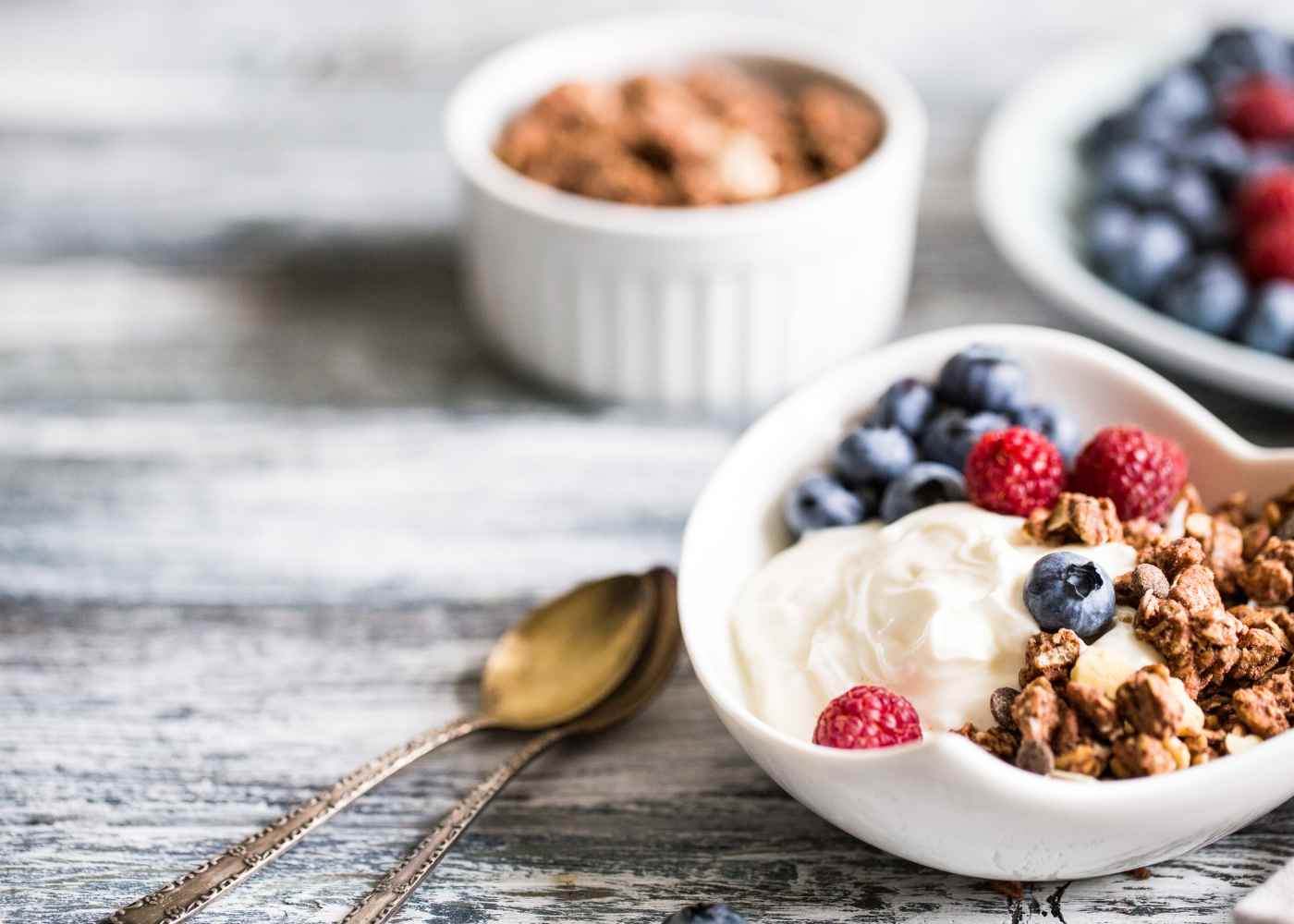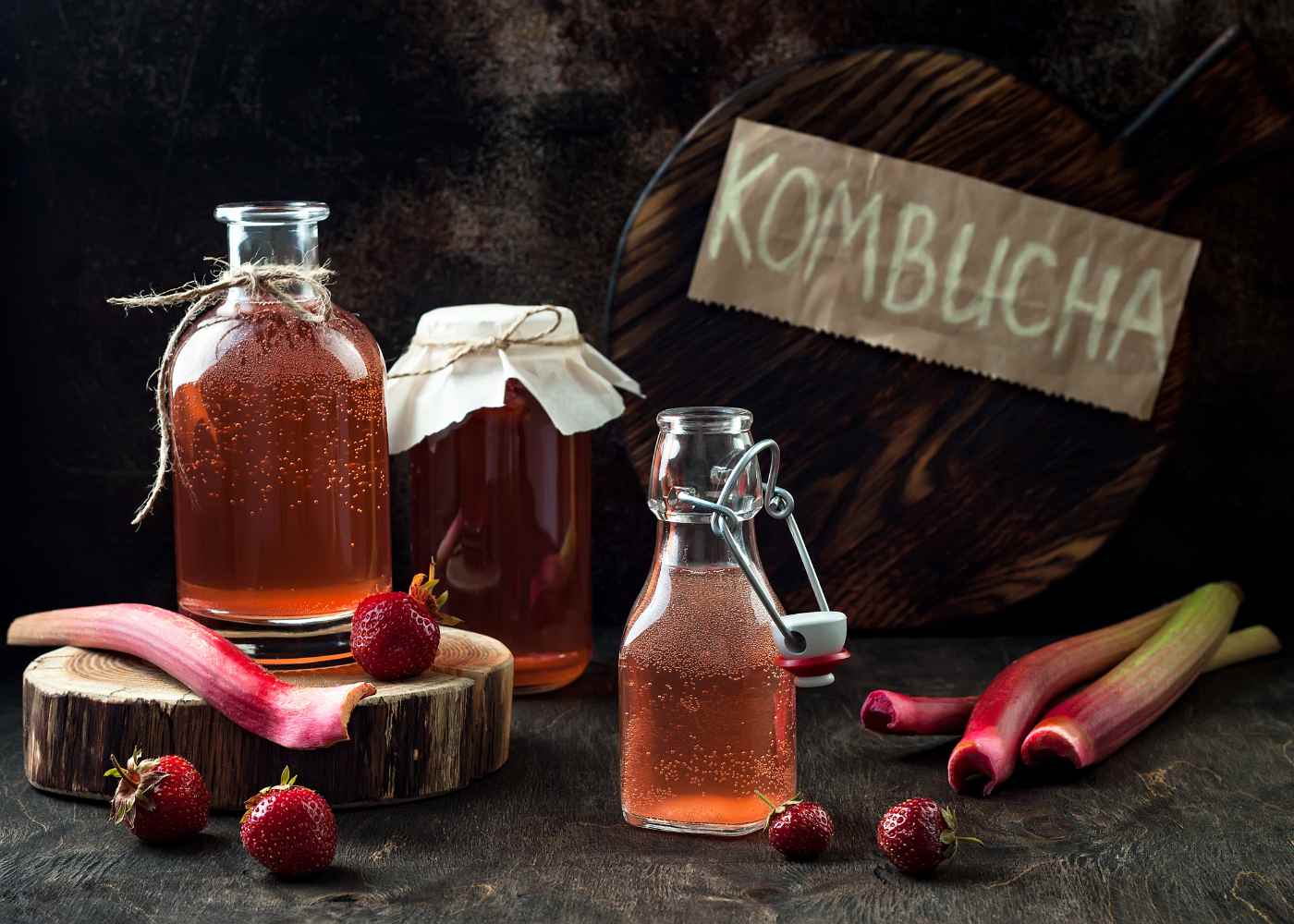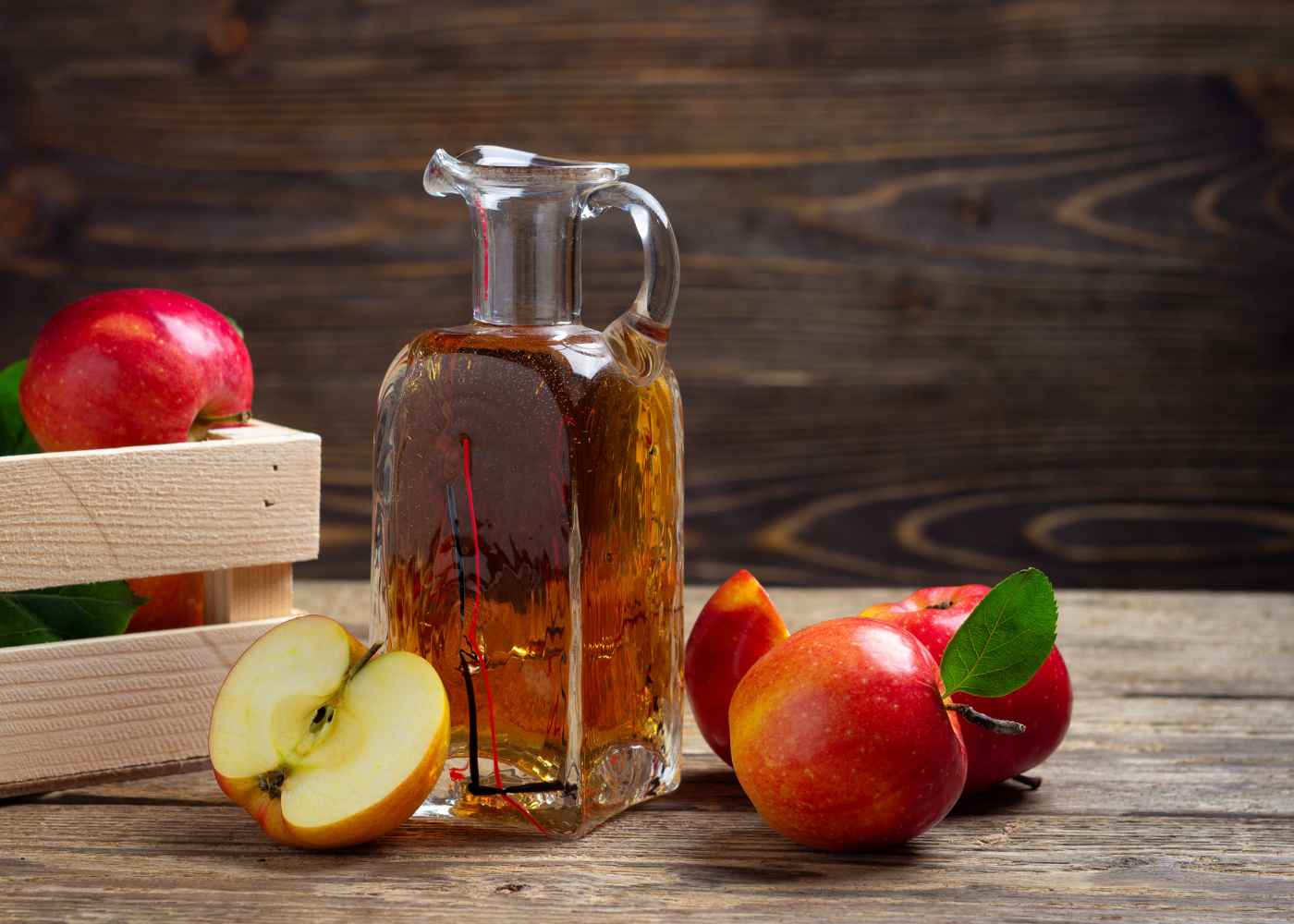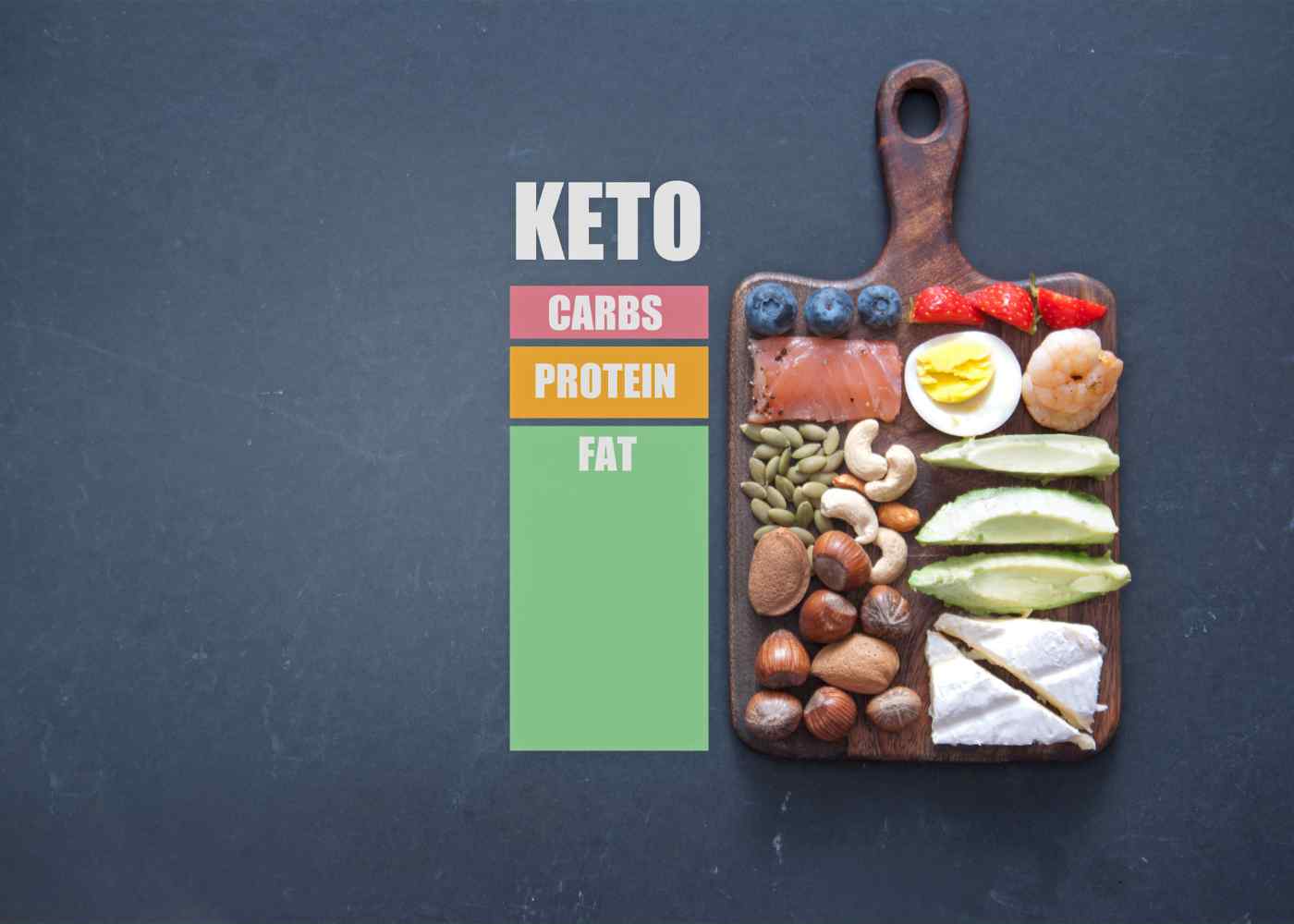
Having a healthy gut is essential for our overall health and well-being. Your gut contains millions of bacteria, both good and bad, that help to break down food, absorb nutrients, regulate metabolism and support your immune system. A healthy gut means having the right balance between bad and good bacteria to promote optimal digestion, and absorption of nutrients from your diet as well as aiding in the prevention of disease. Eating a variety of nutrient-rich foods can help maintain this delicate balance allowing you to reap all the benefits that come with it such as improved energy levels, better moods and increased immunity. Having a healthy gut also helps reduce inflammation which can lead to many chronic illnesses including diabetes, heart disease & cancer if left unchecked.
Healthy Fats and Proteins
Fats and proteins play an essential role in our diets, but it is important to recognize that not all fats and proteins are created equal. Fish and shellfish offer a great source of lean protein as well as healthy omega-3 fatty acids, which can reduce the risk of heart disease. Extra-virgin olive oil boasts numerous health benefits due to its high content of monounsaturated fats, vitamins E & K, antioxidants and anti-inflammatory properties. Avocados provide both healthy monounsaturated fat as well as potassium with every serving making them a great addition to any meal or snack. Nuts such as almonds, walnuts, pistachios and cashews are also excellent sources of healthy fats while providing vital minerals like magnesium for proper nerve functioning. Finally, eggs boast one of the highest quality proteins available with 6 grams per egg; they also contain lutein & zeaxanthin which help protect eye health from age-related damage. Eating these foods will ensure you get the right balance between good fats & proteins needed for optimal health!

High-fiber Foods
Legumes are some of the most important high-fiber foods you
can include in your diet. Not only are they a great source of dietary fiber,
but also provide protein, antioxidants and vitamins & minerals that help
keep us healthy. Legumes such as lentils, beans, chickpeas and split peas
contain up to 16 grams per cup making them an excellent choice for anyone
looking to increase their daily fiber intake.
Vegetables should always be included in any diet due to
their nutrient-dense properties; however many types offer a good dose of
dietary fiber too! Broccoli is particularly rich with about 5g per cup while
Brussels sprouts offer nearly 4g per cup. Root vegetables like sweet potato and
turnips can add another 3-4g of soluble fibers to your meal when cooked or mashed.
Fruits make up another tasty way to up your intake of
dietary fibers with delicious options such as apples (3-4g), pears (6g) &
raspberries (8g). Dried fruits like dates & figs are also excellent sources
containing 10-13g per serving; just remember that dried fruits have more
calories so limit portions if trying to lose weight!
Whole grains are essential for maintaining optimal health as they supply our bodies with complex carbohydrates and dietary fiber. Oats are a commendable source of dietary fiber, providing approximately 4 grams in a single bowl, whereas quinoa delivers over 8 grams in a ½ cup cooked portion size. Besides, barley, bulgur wheat, and farro are also commendable sources of dietary fiber, each containing 7 grams or more. These grains can be effortlessly incorporated into soups and salads to create a mutually nutritious and scrumptious meal.

Healthy Fermented Foods
Fermented foods have been a part of traditional diets for
centuries, but recently they are becoming increasingly popular as more people
recognize the numerous health benefits that come with consuming them.
Fermenting is a process by which natural bacteria consume sugars and starches
to produce lactic acid, which helps preserve food while also supplying
beneficial probiotic strains to our gut microbiome.
Yoghurt is one of the most well-known fermented foods out
there; it's made from cow's milk or plant-based milks like almond or soy and
contains active cultures known as good bacteria which help promote digestive
balance. Yoghurt can be enjoyed plain, sweetened with fruit or added to
smoothies for extra protein & calcium.
Tempeh is another nutritious option made from fermented
whole soybeans; it has an earthy flavor and firm texture making it perfect for
use in stir fries, salads & sandwiches alike. Tempeh provides a wealth of
nutrients including complete proteins, B vitamins & minerals such as
magnesium that help keep us energized throughout the day!
Sauerkraut is a type of pickled cabbage that originated in
Germany centuries ago; its tart flavor pairs perfectly with hot dogs and other
dishes like potato salads. Sauerkraut offers up probiotics alongside vitamins A
& C plus essential minerals such as zinc needed for optimal health.
Kimchi is Korea's answer to sauerkraut “ this spicy condiment
adds zestiness to any dish while providing healthy doses of antioxidants along
with dietary fiber and vitamin K2 important for bone health.
Kombucha has become increasingly popular in recent years because of its refreshing flavor and low sugar content. It can be naturally flavored with fresh fruits or herbs, making it an excellent alternative beverage, especially during the summer. Moreover, besides potentially providing advantageous bacterial strains, kombucha is also rich in several B vitamins that are essential for energy production.

Foods Rich in Prebiotics
Prebiotics are an important part of a healthy diet, as they help to feed the beneficial bacteria in your gut. Bananas contain prebiotic fibers that are particularly helpful for digestion and can also help reduce bloating. Garlic is another great source of prebiotic fiber. Eating garlic on a regular basis can improve overall health by boosting the immune system and improving heart health. Onions too provide plenty of dietary fiber which helps to keep your digestive system functioning properly while adding flavor to meals! Asparagus has long been known for its high levels of inulin, a type of soluble fiber that feeds the helpful bacteria living in our guts. Finally, wheat bran is an excellent source of both insoluble and soluble fibers “ these two types work together to promote digestive balance while providing essential nutrients like magnesium & B-vitamins important for energy production & nerve function.
Foods Rich in Probiotics
Fermented foods are an excellent way to introduce beneficial
bacteria into your diet, and yoghurt is a great place to start. Rich in
probiotics, yoghurt can help improve digestion while also providing essential
vitamins & minerals such as calcium for healthy bones. Kefir is another
fermented milk product that contains even more probiotic strains than regular
yoghurt; it has a slightly sour taste and makes for a delicious smoothie
ingredient!
Kimchi is the Korean version of sauerkraut but with a spicy
kick; this traditional dish contains cabbage plus other vegetables like
radishes which provide plenty of dietary fiber along with antioxidants &
vitamin C important for optimal health. Sourdough bread also provides beneficial
bacterial strains when made using traditional methods “ its unique tangy flavor
pairs perfectly with just about any meal or snack!
Miso soup is yet another popular choice among those looking to increase their intake of probiotics - it's made by fermenting soybeans, rice or barley then combining them with seaweed and other vegetables creating a savory broth full of beneficial bacteria. Furthermore, miso lends itself well to many different recipes from soups & stews to marinades & glazes making it incredibly versatile in the kitchen!

Herbal Supplements
Herbal supplements may offer a natural way to improve health
and treat various ailments. Turmeric is an ancient spice used for centuries in
traditional medicine due to its anti-inflammatory properties, as well as its
ability to boost the immune system and reduce joint pain. Ginger has similar
benefits but also helps alleviate nausea & digestive issues while
stimulating circulation throughout the body. Garlic too contains powerful
antioxidants that can help ward off infection and protect against certain
diseases like cancer plus it offers cardiovascular benefits such as reducing
cholesterol levels!
Cayenne pepper is another spice with numerous applications;
it can be used topically to soothe sore muscles or ingested to benefit
digestion by stimulating saliva production & aiding nutrient absorption.
Echinacea on the other hand is known for its ability to fight colds & flu
symptoms by strengthening the immune system “ studies have shown that regular
consumption of this herb may even help reduce fever associated with these illnesses!
Herbal supplements provide advantageous medicinal properties and additionally encourage holistic well-being. They comprise vital nutrients, including vitamin C, iron, magnesium, and calcium, that are crucial for maintaining optimal health. Furthermore, they serve as natural stress reducers, as they have a soothing impact on both the mental and physical state, rendering them advantageous for integrating into any daily regimen.

Healthy Drinks
Green tea is one of the healthiest drinks you can have and
has been used for centuries to promote wellbeing. Rich in antioxidants, green
tea helps protect our cells from free radical damage while also boosting
metabolism & aiding weight loss efforts. Furthermore, it contains compounds
that may help reduce inflammation and improve brain function too!
Kombucha is a fizzy fermented drink made by combining
sweetened black or green tea with a SCOBY (symbiotic colony of bacteria &
yeast). This probiotic beverage offers an array of benefits including
improved digestion & immunity plus detoxification due to its high levels of
antioxidants. Kombucha can be enjoyed plain or flavored naturally using fresh
fruits, herbs or spices “ perfect for those looking to add some pizzazz to
their daily routine!
Chamomile tea is known as a calming brew which makes it
ideal for evening relaxation; this herbal infusion contains flavonoids that act
as natural sedatives helping us better manage stress levels before bedtime.
Chamomile's mildly bitter taste pairs nicely with honey making it an even more
enjoyable way to unwind at night!
Coconut water is another source of hydration packed full of
electrolytes like potassium needed for muscle contraction & nerve
transmission “ this low-calorie option also helps replenish fluids lost during
exercise making it a great alternative post-workout beverage too! Coconut water's
naturally sweet flavor adds sweetness without any added sugar, so if you're
looking for something other than traditional sports drinks then this might just be
your new go-to refreshment!
Apple cider vinegar has become increasingly popular as a result of its numerous health benefits. It has been shown to aid in the regulation of blood sugar levels, as well as possess antifungal and antibacterial properties, making it an advantageous dietary supplement. To obtain the best results, consider incorporating ACV into your salad dressings or consuming 1 teaspoon diluted in 8 ounces of warm water each morning before breakfast.

Conclusion
To maintain a healthy lifestyle, incorporating gut-friendly
foods is essential. Foods that contain prebiotics and probiotics, such as
bananas, garlic, onions, asparagus, wheat bran, and fermented foods like
yoghurt, kefir, and kimchi, are excellent sources of beneficial bacteria that
can significantly improve digestion and overall health. Additionally,
incorporating herbal supplements like turmeric, ginger, garlic, and cayenne
pepper can provide natural ways to support the body's functions, while also
adding flavor to meals. Moreover, beverages such as green tea and kombucha
offer antioxidant-rich refreshment that is perfect for summer days, while
chamomile tea helps promote relaxation before bedtime. By being creative in the
kitchen, you can easily and actively include these nutrient-dense ingredients
in your diet to ensure that you receive all the necessary vitamins and minerals
required for optimal health!




















